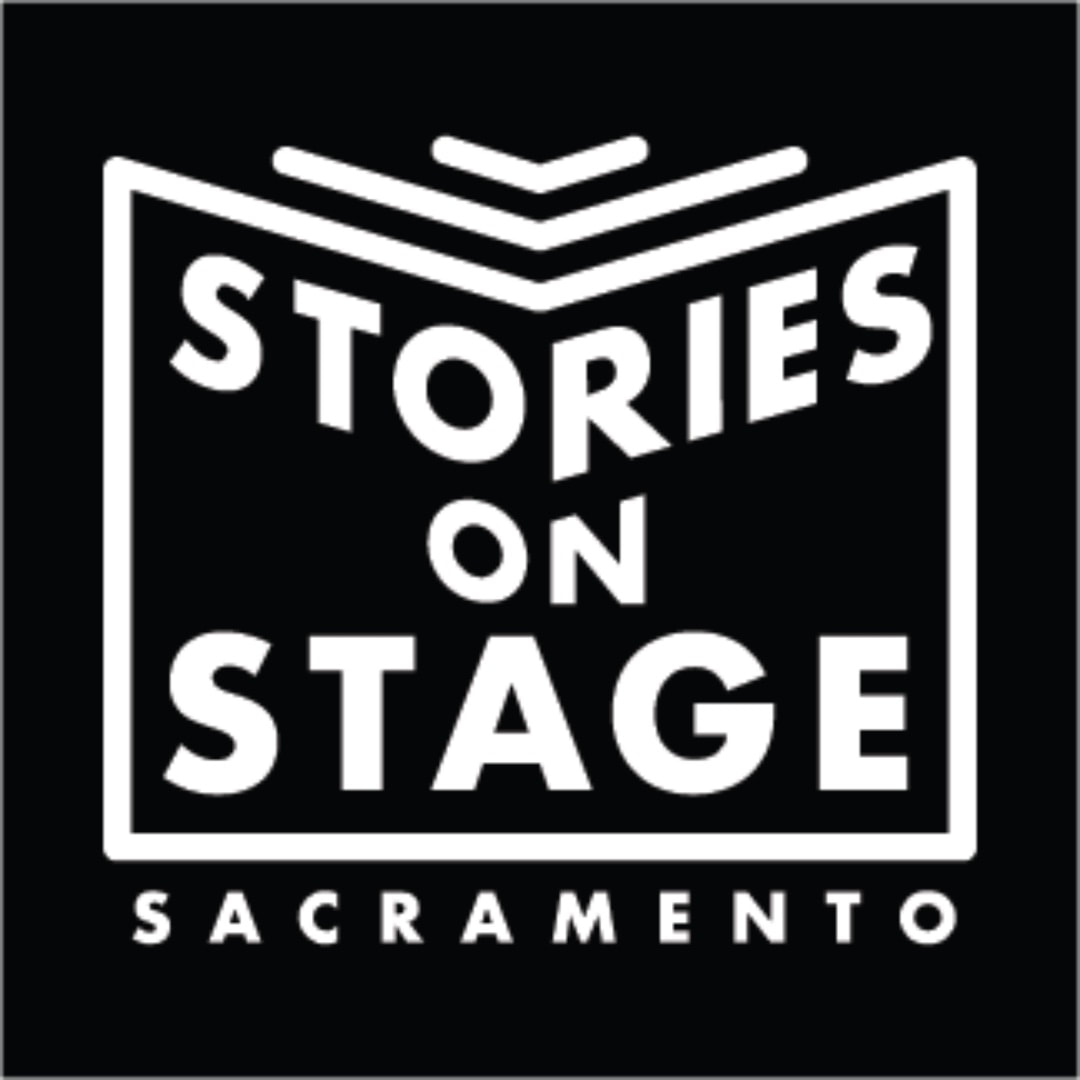|
Interview with Jess Walter, Feb 10 2022 Sue Staats Jess Walter is the whole package – New York Times Bestselling author, National Book Award Finalist, fearless basketball prognosticator, funny guy. I’m a long-time admirer of his work, so I was thrilled to be able to interview him for this month’s blog, because I HAD QUESTIONS. Here’s the thing: I was having a hard time pinning him down. Ten years ago, I read and loved his gritty, dark, drug-soaked collection of short stories We Live in Water. The New York Times called the collection “pungent,” a most apt description. So, when I read his best-selling Beautiful Ruins – romantic, set in Italy, a love story, I couldn’t believe it was by the same writer. And then recently, The Cold Millions plunged me into the labor conflicts of the early 20th century, in Spokane, Washington. It’s a big, sprawling history, full of period language and politics—a very different book than his previous one. Reading some of the stories from his new collection, The Angel of Rome, which will be published in June, I found them jewel-like, focused, and very personal. How does Jess manage this literary shape-shifting? And why? Sue: Jess, I’m really intrigued by how different your books are from each other. Do you re-invent yourself as a writer with every new project, or is there a core Jess Walter focus, a story that you tell over and over in very different ways? Jess: I think the DNA of my work exists in a sort of wistful humor and a kind of romanticism about what the world could be, and so the genre, the topic, the characters—these things are kind of malleable for me. I really approach my writing the way I approach my reading. I read all over the place, my interest will take me in a whole bunch of different directions. A metaphor that sort of works for me is travel. I love travel. So I may go to many different places with incredibly different climates and characters, and once I get there I’m kind of the common denominator. I don’t really think I’m reinventing myself. I take really seriously what Toni Morrison said when she wrote Beloved. She said she wrote the book because she wanted to read it, and that’s kind of what I do, I think, oh, and I get interested in the subject and I really want to read that thing, I really want to know about those characters. Sue: I’m thinking that how you approach your writing, your wide range of interests and willingness to tackle them, is becoming more common and more accepted. I’m thinking of other well-known writers, like you, who write in different genres—Colson Whitehead, for example. But what happens when you have a huge success, like Beautiful Ruins? Are you pressured to stay with this kind of book, to write a sequel? Were you pressured in this way? Jess: No, I think most pressure comes from ourselves. Certainly, in the literary world there are handlers, telling you this is what we want and that’s what we want, but my very first book was narrative non-fiction, and then I wrote a crime novel and then a coming-of-age novel, so for me this is just always the way it’s been. But I do think you’re right, that some of the borders between genre and literary have dissolved. There are generations of writers now who grew up as fans of Lord of the Rings, or comic books or superheroes were their gateway drug, or Harry Potter. So I think it’s really lovely that we don’t have that snobbery towards the genres that we did. For me, I grew up next to a drive-in movie theatre in the 70s, so I grew up with hard-bitten realism, and Westerns and movies like Midnight Express and Al Pacino movies like Serpico and I think the things we love as kids and as young adults, the ages from ten to twenty five, tend to fix us in our creative universe and for me that was everything from Dog Day Afternoon to One Hundred Years of Solitude and I move pretty happily throughout those things. I do think about readers, but I don’t ever think about marketing. When I went to find an agent, I remember saying If anyone says the word “brand” I’m just going to end the meeting. I want to be an artist, not a brand! Sue: Your new collection, The Angel of Rome, comes out in June. Congratulations, and we are honored to have one of the stories in it, “Before You Blow,” as one of our featured stories this month. Your publisher characterizes it as “a stunning collection of those moments when everything changes – for the better, for the worse, for the outrageous.” Were the stories written to that theme, or did you discover it later? Jess: I would say the latter. My first collection, We Live in Water, you’re right, was very gritty. I wrote those during the financial crisis of 2008, during various sorts of personal crises. When I look at those stories they cohere around the idea of those people that we drive past, that we ignore, the panhandlers on the streets, the two meth addicts trying to steal a television, and I wanted to restore the idea of humanity and humor to those kinds of characters. For me, typically, a story collection is things I’ve worked on the intervening years, while I work on novels. And it’s not things I work on when I’m stuck on novels, I take such joy in writing short stories –in many ways, it’s my favorite kind of writing—and so these stories came about from 2013 through 2021, an eight year period. It’s really interesting to look back and see what sorts of themes animated the work that you were engaged in. And I kept finding that I was writing about characters whose sense of themselves was different than maybe ten to fifteen years ago. Something about growing up in the world of movies and television, and then growing into the world of social media has made us our own 1950s publicist, you know? We choose our very best photo of ourselves and we put it on Instagram or Facebook and we hope people see how attractive our family is. We never put the terrible things out there. We live like 1950s movie stars, denying that we’re heroin junkies. Sue: Our hair is perfect. Jess: Right, exactly. And I find that different sort of self-awareness creeping into all of these stories. For most of these characters there’s a moment when the illusion falls away and they’re left with not an online or perfect version of them selves but their real self, and the real selves around them. So I think in “Before You Blow,” which is the story being read—which I really like, I’m so excited to hear it read aloud—she has the idealism of her parents, who have sort of given her to this college boy because he’s pre-law, and has her idealism of this older man and her sense that this is when you lose your virginity, and all of that sort of surfaces in this moment of crisis when she sees the world for what it really is. There’s no mention of Facebook in that story at all, but it’s a similar kind of self-delusion that the character is in for just a moment, and that her daughter is in, and it leads her to have the epiphany that she does. When you go on Facebook, you see love as very much a 1950s thing, my husband and I are celebrating our fiftieth wedding anniversary, it’s been nothing but wonderful times, and there’s no life like that. And the sort of social media envy that takes over when people see other people’s perfect lives causes them to invest in their own delusion. Anyway, looking back through the stories, I found them less political and more personal, more tinged with romance. I really love the title story, “The Angel of Rome,” which very much has the feel of Beautiful Ruins, sun-washed movie star laden story but set in Rome. (Available to listen on Audible here) I think it’s a really great collection, and if you’ve lost track of me over the eight years since Beautiful Ruins, here’s what I’ve done. Sue: The other thing I noticed in your new collection, or what I’ve been able to read of it, is the amount of hope in it. I would think, as a writer, given the political climate today, and the anger, and the division, it would be hard to find hope. Jess: I think that’s probably why those stories go looking for it. In times when there seems to be bountiful hope it’s not something you have to go looking for in fiction. But yeah, I think things feel really fraught right now. To quote myself, in a character from my first collection, “you think this is the end of the world? It’s always been the end of the world.” Those of us who grew up with the threat of nuclear war clearly remember that sense of doom hanging over the world. And whether it’s climate crisis or unstable politics, that sense of doom is there whether we notice it or not often. I think this collection looks for rays of hope in the world we live in, because I think they’re there, first of all, and I think they’re often there in the way we surprise ourselves in each other as humans, and I think that’s what some of the stories work toward. Sue: In one of the advance reviews of The Angel of Rome, the reviewer wrote that the stories, because they are smaller and more personal, could be seen as “palate cleanser” between novels. Do you consider stories that are “smaller” and “lighter,” in the sense of their scope, less important than a big-themed novel? Jess: That’s really difficult to answer. Sometimes I’ll be doing an event and people will say “what’s your next book?” And I’ll say “It’s a book of short stories,” and I’ll see about half the crowd look at their shoes. They want the full investment of the novel. And for some, starting over in a story is disconcerting, and with a story collection you might have to start over twelve times. The funny thing is, a lot of those readers probably liked my novel Beautiful Ruins the most, without realizing it’s a collection of stories, that I’m constantly causing you to start over. I don’t really think of short stories as of less consequence. When I go to work every day I’m trying to find the soul of a story’s true language in the same way, no matter now long I’m writing. There’s a story in the new collection called “Friend Has Cancer” which is a very comic metaphysical story that’s really short. In some ways I can’t imagine tackling bigger themes than fate and whether or not we have free well. So I don’t think I consider them insignificant, except in the amount of time it takes. I sometimes joke that writing a short story is like going on a date, and writing a novel is like getting married, because of the level of relationship it requires to stay with a novel that long. And that’s a little bit of a misnomer, because in writing a short story the intensity with which you have to try and crack that world, and tell it in a short space, and with economical language, makes it more of a challenge. In a novel, you can screw around and have a chapter that doesn’t really work. I sort of love what Tobias Wolff said about short stories, that you can approach perfection with them, and with novels there’s no chance. Every novel is a giant mess, held together by the reader not calling you out. In short stories you can write these little crystalline things, you can approach the talent of Alice Munro or Tobias Wolff, where every once in a while you can’t find a word or even a sentence out of place. In a novel, that never happens. They’re big, unwieldy things by nature. Sue: Just shifting things a little bit. You write funny amazingly well. There’s always funny in your stories, no matter how serious. And I’m wondering why that is—is it to make a hard issue easier to swallow, or, is it something that lets you avoid having to dig deeper? Do you, as a writer, have to be careful not to be too funny? Jess: I think of that as a part of my DNA, that sense of humor, but I do have to avoid the jokey. Sometimes it’s like a trap door, you build up all the tension in the story and then the humor makes the whole thing fall away. So I do think you have to watch for that. But I think of the “comic novel” as representing the deepest of humanity in some ways. I mean, if you can’t laugh at the tragedy around you, then it’s like filming in black and white, you’re missing the whole vibrant color of the world to not be able to see it with humor. For me, the root probably comes from getting a stick in my eye as a five-year-old and having to wear an eye patch and being sort of a small kid. And I was such an accident prone person, I think I’ve broken thirty-eight bones in my life, and in a sense it makes you see the world sort of comically, like the world’s filled with banana peels and flying pies. Sue: Well, you’re right. You can either sink into misery or see the funny. Jess: And you go back and read Shakespeare. A character like Falstaff, his life force comes from his inability to not take the world so seriously, and that’s something I admire in Shakespeare, whom we think of as incredibly serious. That said, there are times when I’m writing and I get so taken by a joke that I know I have to take it out. That idea of killing your darlings? Many of my darlings are hilarious, but they will take away from the tension of a novel or make a left turn into a place that doesn’t leave me anywhere to go. So it is something I sort of have to watch for, but I would never try to excise it from my work. I think the writers I love have a comic sensibility, even in work that isn’t funny. They are able to puncture the vanities of their characters in the things we take way too seriously, the kind of narcissistic way we imagine our own grief and sorrow, as if they are the only things that have ever existed in the universe. Sue: A compilation of all those darlings you have killed would make a really fine McSweeney’s column. Jess: (Laughs) When I was going through short stories for the collection, I had probably fifty to choose from, and the easiest ones to set aside were the ones that were kind of an extended joke, where there wasn’t character growth or something dramatic happening. I just did it to make myself laugh, and couldn’t find anything else in it. Sue: Moments of self-amusement in your writing day are something that everyone needs Jess: Yes, I know, I love them. I’ve written crime novels that are funny, I’ve written coming-of-age novels where the humor intersects with something really profound, and that’s still my favorite intersection – the corner of funny and whatever. Sue: I’m going to skip ahead here, because I’ve found that I’m talking about writing process, which I didn’t mean to do, because I’ve read so many wonderful interviews you’ve done, where the interviewers were also writers and they just wanted to dig into your process and find out how you do it and what makes you tick. And you’re always kind, and patient and forthcoming, as you have been with me. So I’m wondering, do you even like talking about writing? When you get together with other writers, do you talk about writing? Or do you talk about anything but? Jess: I don’t think I ever tire of it. I’m painfully aware that whatever I’ve said in an interview, the very next time I’m working it turns out to be untrue. I’ll say, well I work in these hours and the next time I’m working different hours. I love talking about it but I’m aware that most writers like myself are incredibly unreliable narrators, you know we’re stumbling through the desert describing what we see as if it was a path, and we’d better just come clean. But I still love talking about writing. I have several writing friends, we get together and that’s what we do. I was recently in Missoula, Montana with a good writing friend of mine and he and I were just engaged in this idea, can you teach the novel? Is the novel something that is a teachable work of art, or do you have to teach short stories? And we were just going back and forth for an hour, talking about rubrics and pedagogy and all kinds of things, and this old drunk guy was at the bar and he kept getting closer and closer to us until he sort of joined our conversation, he was just looking back and forth like he was watching a ping-pong match, and he finally said “Aw, shut up!” Ben and I looked at each other and we just burst into laughter and from that moment on we call it “shut up talk,” like let’s get together and have some “shut up talk.” I think that’s the greatest critique of writing process that I’ve ever seen. Aw, shut up! Sue: You’ve spoken of writers being thought of as regional, and how many really excellent writers get trapped into that identity—they’re a Northwestern writer, or a Southern writer, or a Midwestern writer. How do you think that you, living in Spokane, which is not a large literary hub, broke free of the “regional writer” designation? Jess: I’m not entirely sure that I have, of that I need to. That idea of being “trapped” by something? I think we trap ourselves often, and I don’t think non-writers understand how incredibly rare it is to make a career as any kind of writer. And so it’s a little like looking at lottery winners and saying, what’s the common denominator? It’s just pretty much that they bought tickets. Every time you write it’s just buying a ticket. It’s not as random as that, but there’s nothing you can do to break out of a genre or regional trap, or writing only about things women care about, or about things men care about, or things that only you care about. It’s almost not worth trying to figure those things out. You just write. So if I have a secret, I think that’s it. I certainly didn’t allow myself to become a regional writer, or when I won an Edgar award to become a crime writer. I just kept writing different things, and going different places. There’s a certain audacity in the entire enterprise, and I think early on I just assumed no one was watching or paying attention and it made it really easy to be audacious. I don’t think I was even a regional writer at first. I was a guy who had a non-fiction book then I was someone who had a history novel, and then with Zero I was a National Book Award finalist and kind of early on I established myself as someone hard to pin down. You know, we are writing in the time we are in, but we all hope our work kind of transcends that. You read a book like Stoner, by John Williams, which didn’t make any kind of splash when it came out, and now has this second life as this incredible work of fiction. It wasn’t really made for the time it came out, and so it was overlooked. Sometimes that’s the way with writers. We don’t know who’s going to make the turn, and that’s another thing you can’t really concern your self about. You have to be almost totally existentialist and live within the moment of the thing you’re writing. And only that. It’s an incredibly lucky place I’ve found myself. But I would not know how to do it intentionally, and I would never tell anyone to take the path I have taken – be marginally successful at this and then switch to that, don’t get an agent until your fifth book, send manuscripts out on your own, don’t get an MFA – I think I’ve done everything wrong, so if there’s a path to success, it’s not mine. I think any success I’ve had is almost in spite of my own path. Sue: You seem really humble and grateful. And I imagine, having lived in Spokane your entire life, introducing himself as “Jess Walter, New York Times Best Selling Novelist” wouldn’t go over very well! Jess: Strangely, Spokane does have a real literary history and a thriving scene now, including Shawn Vestal, Sherman Alexie, Timothy Egan, Sharma Shields—in fact, the very first woman to win a Pulitzer Prize for poetry, Carolyn Kizer, was from Spokane. But the one great thing about it is how grounding it is. So, if I were to walk around and introduce myself as Jess Walter, Best Selling Novelist, it would be to my few neighbors and my brother, who wouldn’t really care. But it is such a literary town that I’ll be in the grocery store, and someone will come up and say I’m glad you have a story collection coming out, those are my favorites, or I’ll be sitting in a coffee shop writing and someone will lean over my shoulder and say I hope that’s a new novel, so people are really respectful here, and very well-read, and there are great independent bookstores which to me are the lifeblood of every literary community. Sue: So, do you set most of your work in Spokane as almost a thank-you for that? Jess: Well, I like to venture out and I love to come home. So I do those two things as a fiction writer. With Zero, I’m in New York, then I come back home for Financial Lives of the Poets, then I venture back out for Beautiful Ruins, and then I come back home for We Live In Water and The Cold Millions, and then venture back out with The Angel of Rome, and a new novel I’m working on, that’s set in the Virgin Islands, so I think it’s a fascination with the outside. Also, growing up in Spokane, even though it’s a literary place, it shocked me to realize that I could write fiction set here, and that it was as unique as some neighborhood in Brooklyn that I’d read fifteen novels about. So I think it’s a kind of realization that the place you’re from is worthy of literature. That to me was an epiphany that fueled so much of my writing. Sue: Finally, I really like how much you mention how much you love basketball, and how much you play basketball. Jess: Well you know, Damontas Sabonis, who went to Gonzaga, just got traded to the Sacramento Kings, so my daughter and I are thinking of catching a game. (Walter’s daughter attends UC Davis) Sue: Well, the Kings are a really sad team. But, exciting! Jess: But they’re undefeated in the Sabonis era. Sue: How like you to find hope in the situation! Jess: Well, I’m going to tell you. Mark my words, the Kings are going to make the play-in game for the playoffs this year, and they’re going to win. They’re going to make it to the first round of the playoffs. That’s my prediction, and that’s not just hope, that’s a real basketball expert looking at the roster, and even though they traded a terrific young talent to get Sabonis, with him and Barnes and some of the other guards, I think they’re going to make the playoffs. I also might go to a Sacramento State game, because my alma mater, Eastern Washington, is playing them. Sue: Well, that prediction will gladden the hearts of a lot of Sacramentans who’ve kind of lost hope. Jess: That’s all right. I would tell them, write it down, they can all email me with their complaints if it doesn’t happen. And I know the pessimism of being a Kings fan, but the joy of that first round playoff game? My prediction is that the Kings will finish higher than the Lakers. Sue: Want to put some money on that, Jess? Jess: No, I’m afraid my Gambling Anonymous sponsor wouldn’t allow it.
1 Comment
|
|
Who We AreLiterature. Live!
Stories on Stage Sacramento is an award-winning, nonprofit literary performance series featuring stories by local, national and international authors performed aloud by professional actors. Designated as Best of the City 2019 by Sactown Magazine and Best Virtual Music or Entertainment Experience of 2021 by Sacramento Magazine. |
|
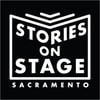

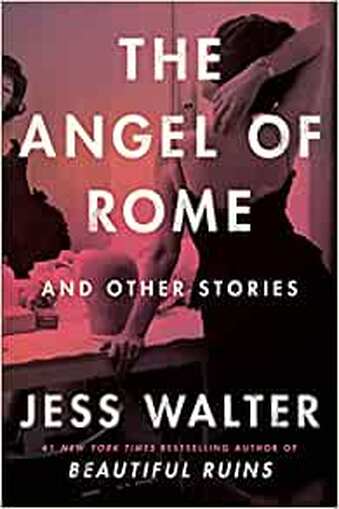
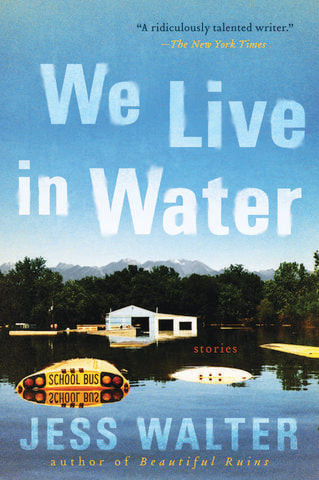
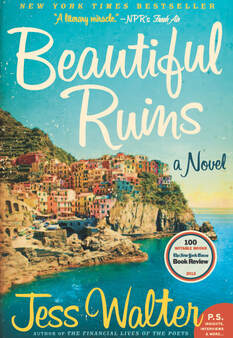
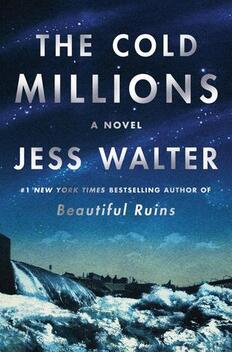
 RSS Feed
RSS Feed
